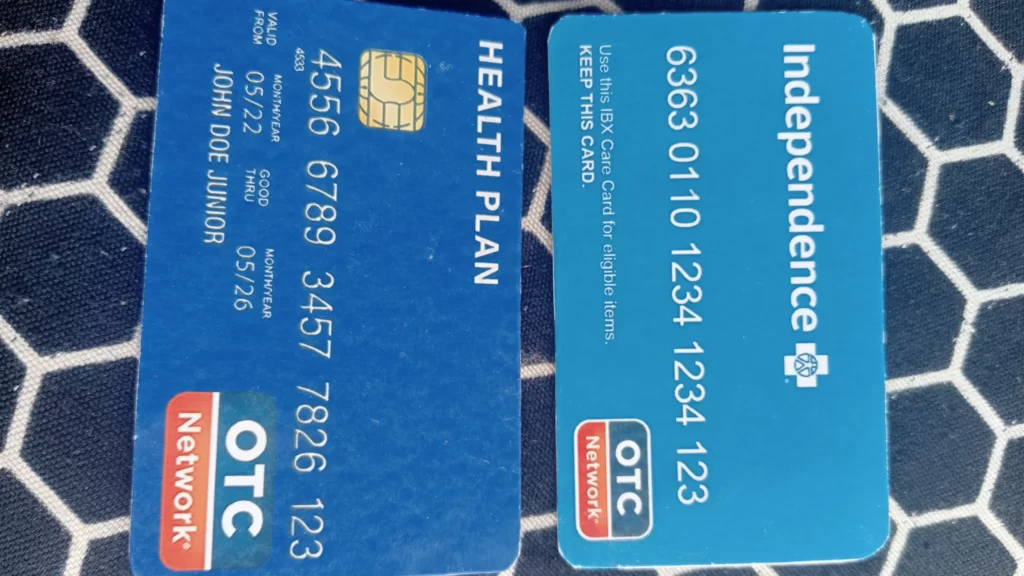An Over-The-Counter (OTC) card can be a valuable card for individuals who want to purchase eligible healthcare items without paying out-of-pocket.
OTC cards are often provided as a benefit to Medicare Advantage plan members and can cover a wide range of eligible items, including over-the-counter medications, first aid supplies, and personal care products.
However, before applying for an OTC card, it’s important to understand the eligibility requirements, coverage, benefit amount, activation process, retailer acceptance, restrictions, ordering process, and purchase tracking.
In this article, we’ll explore 10 important points to keep in mind when applying for an OTC card.

Important Points to Keep in Mind When Applying for an OTC Card
An Over-The-Counter (OTC) card is a type of debit card that allows users to purchase eligible healthcare items without paying out-of-pocket.
Here are the 10 most important points to keep in mind when applying for an OTC card:
1. Eligibility
Before applying for an OTC card, make sure that you are eligible for one. OTC cards are often provided to Medicare Advantage plan members, but eligibility may vary depending on the plan.
2. Enrollment
To apply for an OTC card, you may need to enroll in a specific Medicare Advantage plan that offers the benefit. Check with your insurance provider to determine the enrollment process.
3. Coverage
OTC cards may cover a wide range of eligible items, including over-the-counter medications, first aid supplies, and personal care products. Review the list of eligible items to ensure that the items you need are covered. You can also buy food with an OTC card.
4. Benefit amount
OTC cards typically have a set amount of money available for eligible purchases each month. Be aware of the benefit amount and plan your purchases accordingly.
5. Activation
Once you receive your OTC card, you may need to activate it before use. Follow the activation instructions provided with the card.
6. Expiration
OTC cards may have an expiration date, so be sure to use the funds before the expiration date to avoid losing any unused benefit amount. Also check the OTC card balance before use.
7. Retailers
Not all retailers stores that accept OTC cards, so make sure to check with the retailer before attempting to use the card. Many major retailers and pharmacies accept OTC cards, but it’s always best to confirm before making a purchase.
8. Restrictions
OTC cards may have certain restrictions on eligible items, such as quantity limits or brand exclusions. Review the restrictions carefully to avoid any issues when making purchases.
9. Ordering process
Depending on the plan, you may need to order eligible items through a specific vendor or website. Follow the ordering process carefully to ensure that you receive the correct items and don’t exceed the benefit amount to pay with an OTC card.
10. Tracking purchases
Keep track of your purchases using the OTC card to ensure that you don’t exceed the benefit amount or purchase ineligible items. Many plans offer online tracking tools to help you monitor your purchases.
Conclusion
In conclusion, an OTC card can be a valuable benefit for individuals looking to save money on eligible healthcare items.
By understanding the important points outlined in this article, such as eligibility, coverage, benefit amount, and restrictions, individuals can make the most of their OTC card benefits and save money on healthcare expenses.
FAQ’s
How do I activate my OTC card?
Activation instructions for OTC cards may vary depending on the plan. Typically, you will need to call a toll-free number or visit a website to activate the card. Follow the instructions provided by your insurance provider to activate your card.
Can I use my OTC card to purchase items online?
Yes, many plans allow you to use your OTC card to purchase eligible items online. You may need to order through a specific vendor or website designated by your plan. Check with your insurance provider for details on the ordering process.
What happens if I don’t use all of my benefit amount in a given month?
Unused benefit amounts typically do not carry over to the following month. It’s important to use your benefit amount each month to avoid losing any unused funds.